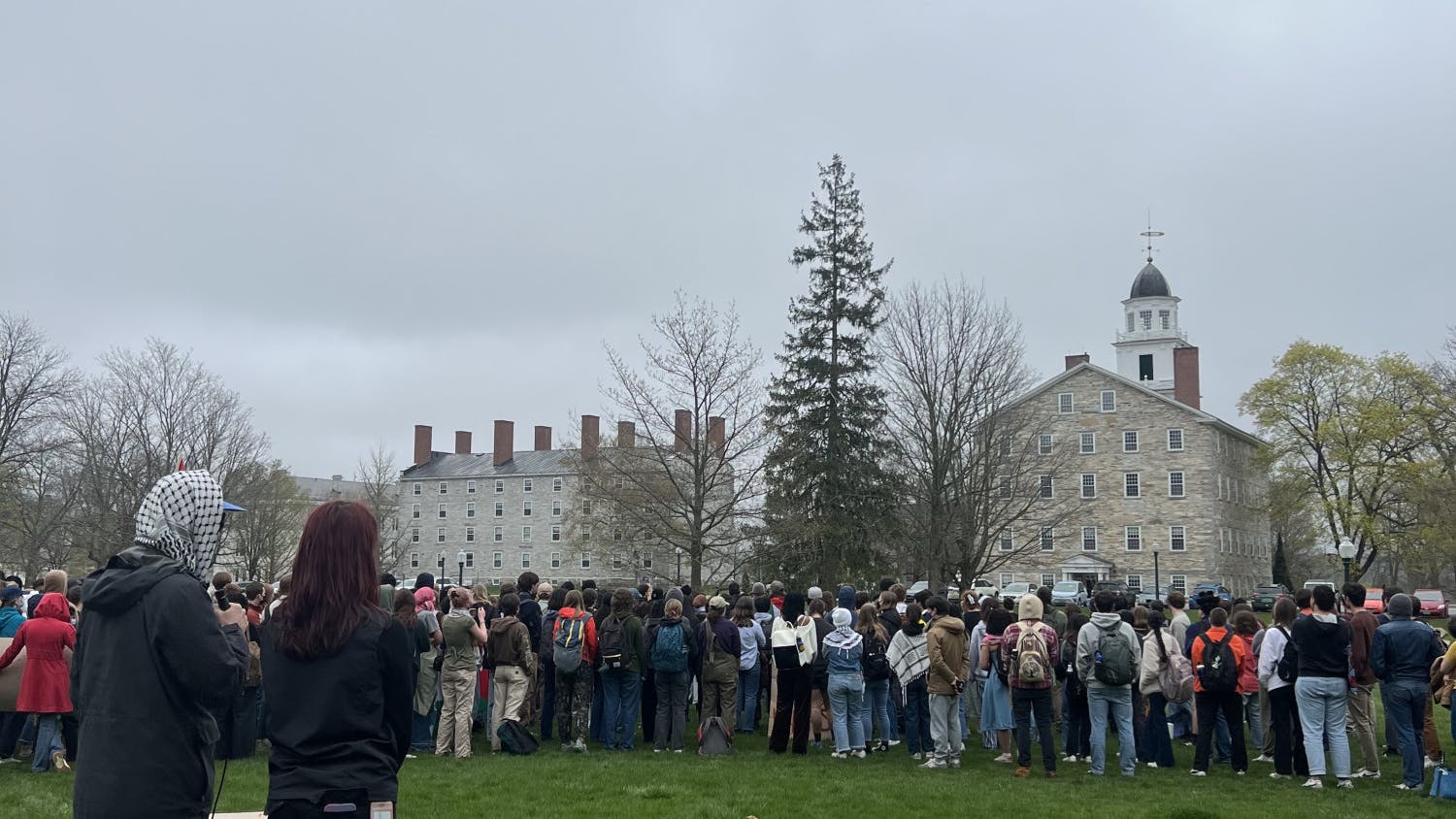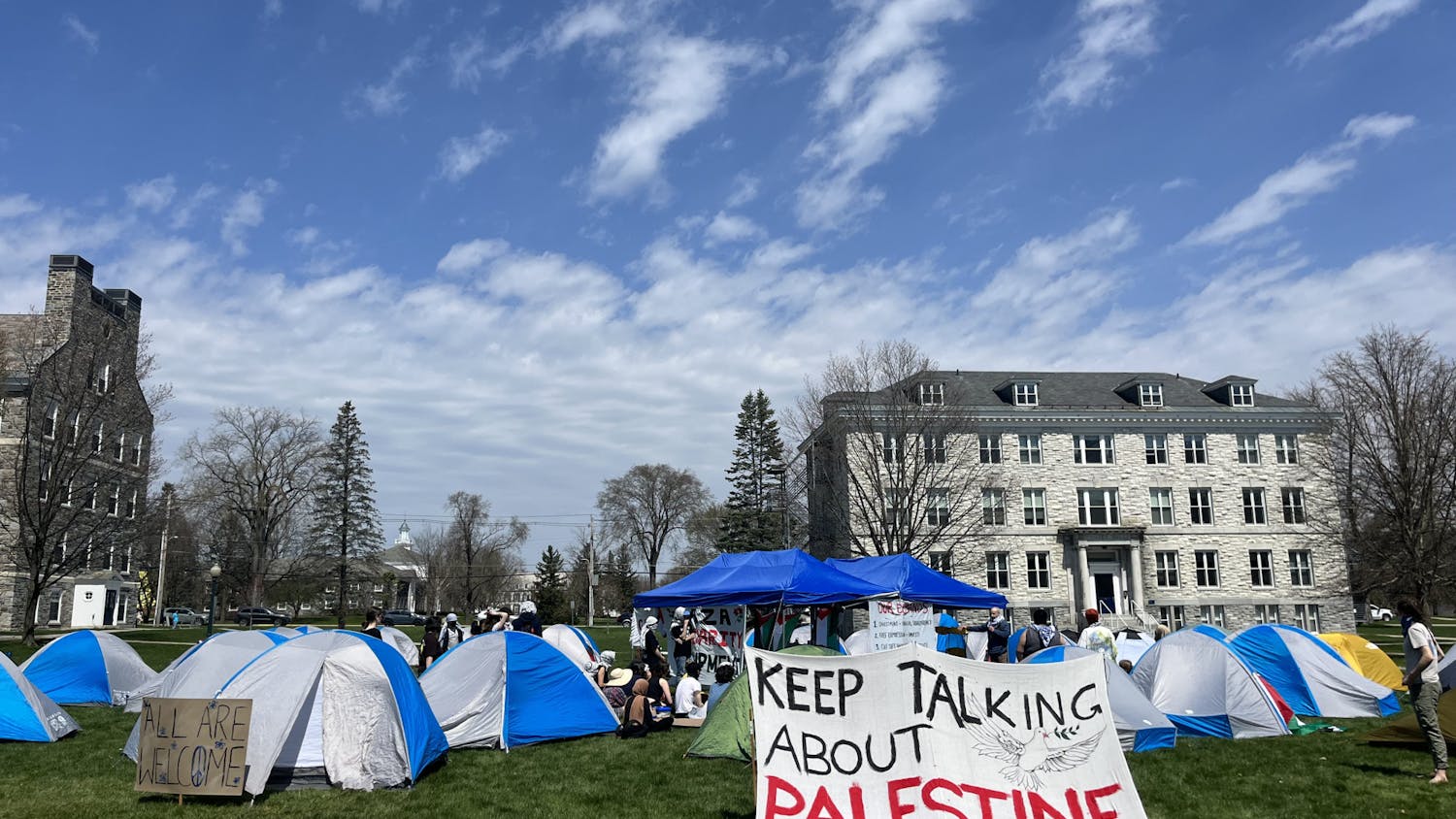Professor of Geology Pat Manley included a cartoon on the introductory slide of a slideshow in her Ocean Floor class on Tuesday that joked about the slave trade. The cartoon, which appeared on a slide titled “Humor for Today,” depicted a slave ship crossing the ocean with a person strapped to the back, with text reading, “the better-equipped slave ships, of course, always carried a spare.”
This incident occurred less than two weeks after a Holocaust-related chemistry midterm exam question caused widespread controversy on campus.
Charlie Caldwell ’22, a student in the class, said that people immediately noticed that the comic was in poor taste.
“There was one of those awkward tensions in the room when someone says or shows something that people are uncomfortable with,” he said.
Caldwell said that Manley always shows a comic at the beginning of class, and that the comics are often unrelated to the content of the course.
“Generally they are pretty cheesy humor and sometimes they get a giggle or two,” he said, explaining that this cartoon felt much different from the norm. “The objectification of a human is supposed to be the humor of it, which is not funny.”
Caldwell decided to address the situation in the moment. He raised his hand and told Manley that she should not show the comic in the future. He said she was receptive to that feedback.
In response to an email from The Campus, Manley apologized for her decision to show the cartoon in class.
“I am deeply sorry for including a cartoon that makes light of historical atrocities,” she said. “I will be apologizing to the class during our next meeting and expressing my deepest regret that I made anyone in the class uncomfortable, and am working with the administration on the possibility of holding a restorative practices circle with my class.”
Aaron Bode ’22, another student in the class, feels that students should communicate directly with Manley about their concerns as next steps develop, although he also acknowledged that not all students feel comfortable addressing incidents like this with their professors directly.
“I think it’s important to remember that she’s a human being, we all are, and I think it’s important to be in contact with her. I think it’s important that there is a lot of communication with her about this,” he said.
Bode, who is also in the Chemistry 103 class where the offensive midterm question was posed, also expressed his desire for all professors to undergo mandatory bias training.
“Coming to Middlebury, I didn’t think this sort of thing would happen here, but now seeing that it can I think that it’s incredibly important that professors realize these things have big impacts on people,” he said.
According to Andi Lloyd, the dean of faculty, the administration is currently discussing the best way to proceed regarding the potential of mandatory training given recent events.
“Early next week, we will be holding a facilitated dialogue on classroom climate for faculty who have already asked for a chance to participate in such an opportunity,” she said.
Renee Wells, the college’s director of education for equity and inclusion who will pilot an anti-bias training program in the fall, has mixed feelings about requiring mandatory training.
“In theory, making training mandatory means everyone participates, but what that ‘participation’ looks like can vary widely depending on whether people actually want to be there, which can impact the experience and effectiveness of the space for all the participants in the room,” she said. “We need to be intentional about determining the best way to meaningfully engage our faculty and staff in these conversations so those conversations can benefit the entire campus community.”
Wells explained that her pilot program is not currently designed to be mandatory, but rather to further ongoing conversations that will help reduce bias and change the culture around such incidents on campus.
“The ongoing education program for faculty and staff is designed to create space for those conversations to happen and to strategically focus on concrete ways we can adapt our practices to better achieve those goals,” she said.
Correction: an earlier version of this article stated that the cartoon depicted the transatlantic slave trade. In fact, the cartoon did not specify which slave trade was being depicted.
Geology Professor Shows Cartoon Joking About Slave Trade in Class

Comments



